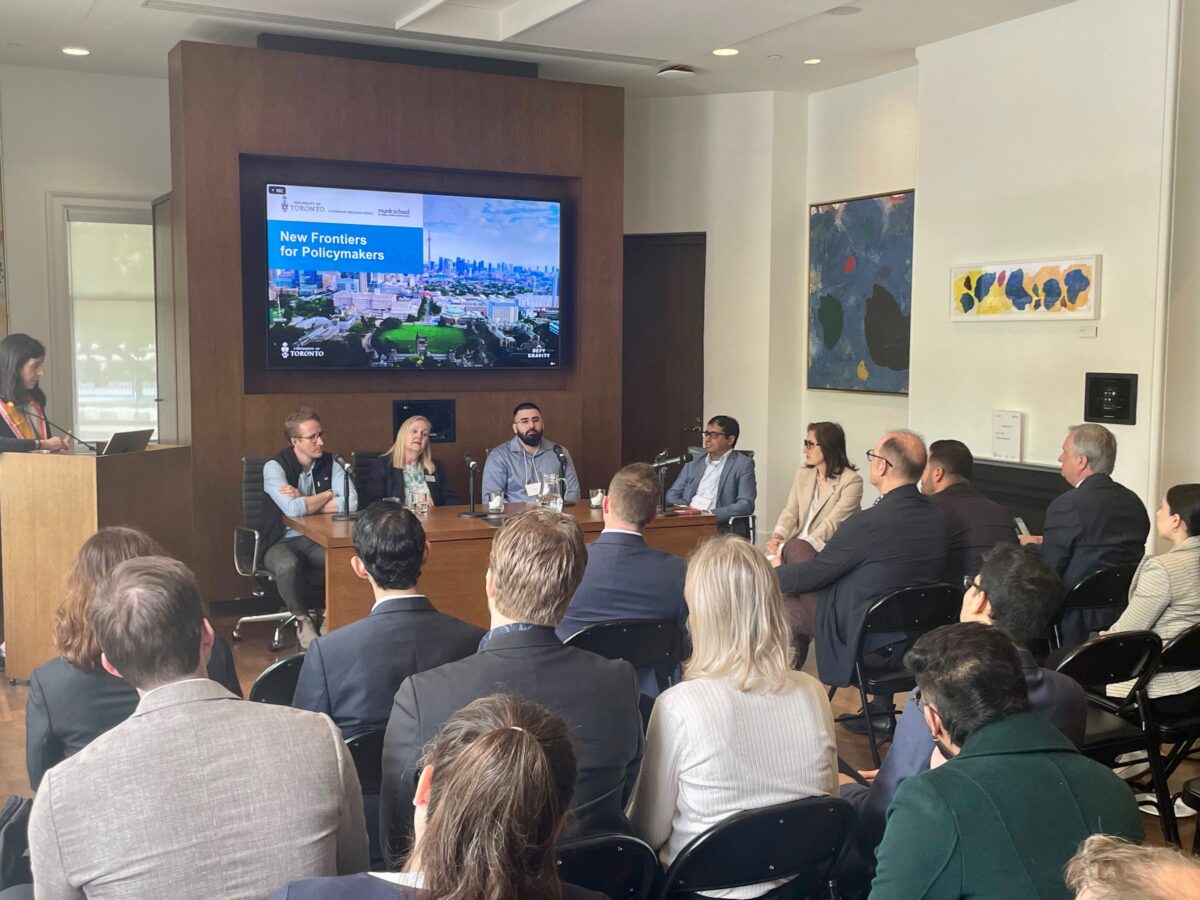
On May 14, 2025, University of Toronto’s Government Relations Office (GRO) welcomed industry leaders and decision makers for a discussion on the intersection of critical minerals, energy, and artificial intelligence (AI) in Ontario’s innovation economy. The discussion was presented as a session in the New Frontiers for Policymakers series in partnership with the Munk School of Global Affairs & Public Policy.
Highlighting U of T resources to support government goals, the GRO and the Munk School hosted this policy discussion focused on showcasing how AI research and talent is strengthening Ontario’s critical minerals and energy sectors.
Professor Lesley Warren, Director of the Mining Futures Initiative, opened the afternoon with a discussion on the risks and opportunities in the mining industry. Recognizing that the energy transition will require more mining and critical minerals that for power and electrification, Warren emphasized how U of T’s interdisciplinary research ecosystem can cultivate industry partnerships that prioritize sustainability, and balance geopolitics with stakeholder expectations.
Professor Sebastian Goodfellow, Director of the Lassonde Institute of Mining, continued the discussion with a presentation on how AI automation in examining and logging core samples can solve one of the largest bottlenecks in the mining industry. His startup KORE Geosystems collaborates with U of T for high quality datasets and incorporates geologists in the model training loop.
Junid Ebadi, Business Analyst for Vector Institute’s FastLane program, highlighted how the institute’s dual mandate of research excellence and economic progress was developed to position Canada as a global leader in AI strategy. The FastLane program in particular enables Canadian startups to accelerate their AI commercialization journey and compete more effectively in the global economy, and works with ecosystem partners to support AI ventures.
Shatha Qaqish-Clavering, Executive Director of Climate Positive Energy, was joined by Shah Nawaz Ahmed, Business Unit Head Digital Grid, Smart Infrastructure, Siemens Canada, who together shared insights on U of T leadership in building a modern, secure, smart grid to support AI applications. The first of its kind in Canada, U of T’s Grid Modernization Centre will accelerate the integration of energy solutions into the grid, collaborating with stakeholders including Siemens to reflect the needs of an evolving smart grid for a decarbonized, decentralized, and digitized future. They also discussed the power of AI on the grid of the future and the threat it carries in terms of cybersecurity attacks. The discussion also focused on the power hungry data centres and how they can be leveraged for economic benefits while minimizing the impact on the grid.
To close the afternoon, attendees engaged in a Q&A session with the speakers, focusing on the themes of partnership, commercialization, intellectual property, and attracting research and development to Ontario.
CPE extends its gratitude to the organizers and attendees for helping to facilitate this importing discussion, and look forward to future conversations that support solutions towards a greener economy.